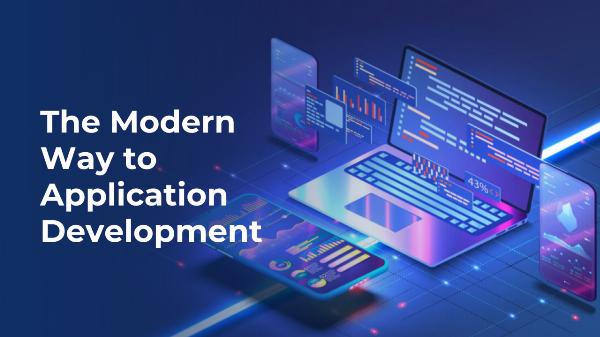Generative AI is revolutionizing the retail industry, offering innovative solutions that enhance customer experiences, streamline operations, and drive business growth. By leveraging advanced machine learning algorithms, generative AI can create new content, designs, and products, transforming the way retailers interact with customers and manage their businesses. This article explores the various applications of generative AI in retail, its benefits, and its future potential.
What is Generative AI?
Generative AI refers to a class of artificial intelligence models that can generate new data based on patterns learned from existing data. These models, such as Generative Adversarial Networks (GANs) and Variational Autoencoders (VAEs), can create realistic images, text, music, and other forms of content. In retail, generative AI is used to design new products, create personalized marketing content, optimize supply chains, and enhance customer service.
Applications of Generative AI in Retail
Product Design and Development
- Fashion and Apparel: Generative AI can analyze fashion trends and customer preferences to design new clothing lines and accessories. AI-generated designs can help retailers quickly adapt to changing trends and reduce the time and cost associated with traditional design processes.
- Furniture and Home Decor: AI can generate new furniture and home decor designs based on customer preferences and market trends. This enables retailers to offer unique and personalized products that cater to individual tastes.
Personalized Marketing and Customer Engagement
- Content Creation: Generative AI can create personalized marketing content, such as emails, social media posts, and advertisements. By analyzing customer data, AI can tailor content to individual preferences, increasing engagement and conversion rates.
- Virtual Try-Ons: AI-powered virtual try-on solutions allow customers to visualize how clothing, accessories, or makeup products will look on them. This enhances the online shopping experience and reduces the likelihood of returns.
Inventory Management and Demand Forecasting
- Predictive Analytics: Generative AI can predict demand for products based on historical sales data, market trends, and external factors. This helps retailers optimize inventory levels, reduce stockouts and overstock situations, and improve supply chain efficiency.
- Automated Restocking: AI-driven systems can automatically generate restocking orders when inventory levels fall below a certain threshold, ensuring that popular products are always available for customers.
Customer Service and Support
- AI Chatbots and Virtual Assistants: Generative AI-powered chatbots can provide personalized customer support, answering queries, processing orders, and offering product recommendations. These virtual assistants enhance customer satisfaction by providing instant and accurate assistance.
- Voice Assistants: Retailers can use AI-driven voice assistants to improve the shopping experience. Customers can use voice commands to search for products, check prices, and make purchases, making the shopping process more convenient and efficient.
Visual Merchandising and Store Layout Optimization
- AI-Generated Displays: Generative AI can create visually appealing store displays and layouts that attract customers and encourage purchases. By analyzing customer behavior and preferences, AI can optimize store layouts to maximize sales and enhance the shopping experience.
- Virtual Store Planning: Retailers can use AI to generate virtual store layouts and simulate customer traffic patterns. This helps in planning and optimizing physical store layouts before implementation, reducing costs and improving efficiency.
Benefits of Generative AI in Retail
- Enhanced Customer Experience: Personalized product recommendations, virtual try-ons, and AI-driven customer support create a seamless and engaging shopping experience, increasing customer satisfaction and loyalty.
- Increased Efficiency: Automated inventory management, demand forecasting, and restocking processes reduce manual effort and improve operational efficiency, allowing retailers to focus on strategic initiatives.
- Cost Savings: By optimizing product design, marketing content, and store layouts, generative AI helps retailers reduce costs associated with design, marketing, and physical store planning.
- Improved Decision-Making: Predictive analytics and demand forecasting provide retailers with valuable insights, enabling data-driven decision-making and better business outcomes.
- Competitive Advantage: Adopting generative AI technologies allows retailers to stay ahead of the competition by offering innovative products and services that cater to evolving customer preferences.
Future Potential of Generative AI in Retail
The future of generative AI in retail holds immense potential, with several emerging trends and developments:
- Hyper-Personalization: Advances in generative AI will enable retailers to offer even more personalized shopping experiences, tailoring products, marketing content, and customer interactions to individual preferences.
- Sustainability and Ethical AI: AI-driven solutions will help retailers adopt sustainable practices by optimizing supply chains, reducing waste, and creating eco-friendly products. Ethical AI practices will ensure that AI-generated content and decisions are fair, transparent, and unbiased.
- Augmented Reality (AR) and Virtual Reality (VR): The integration of generative AI with AR and VR technologies will create immersive shopping experiences, allowing customers to explore virtual stores and try products in a realistic environment.
- AI-Driven Innovation: Generative AI will continue to drive innovation in product design, marketing, and customer service, enabling retailers to stay at the forefront of industry trends and deliver exceptional value to their customers.
Conclusion
Generative AI is transforming the retail industry by enhancing customer experiences, streamlining operations, and driving business growth. By leveraging advanced AI technologies, retailers can offer personalized products and services, optimize inventory management, and improve customer engagement. As generative AI continues to evolve, its potential to revolutionize the retail landscape will only grow, making it an essential tool for retailers seeking to thrive in a competitive market. Embracing generative AI will enable retailers to stay ahead of the curve, innovate, and deliver unparalleled value to their customers.
 Don't let your content be flagged with AI Detectors - use a Free AI Humanizer
Don't let your content be flagged with AI Detectors - use a Free AI Humanizer
 Don't let your content be flagged with AI Detectors - use a Free AI Humanizer
Don't let your content be flagged with AI Detectors - use a Free AI Humanizer

















